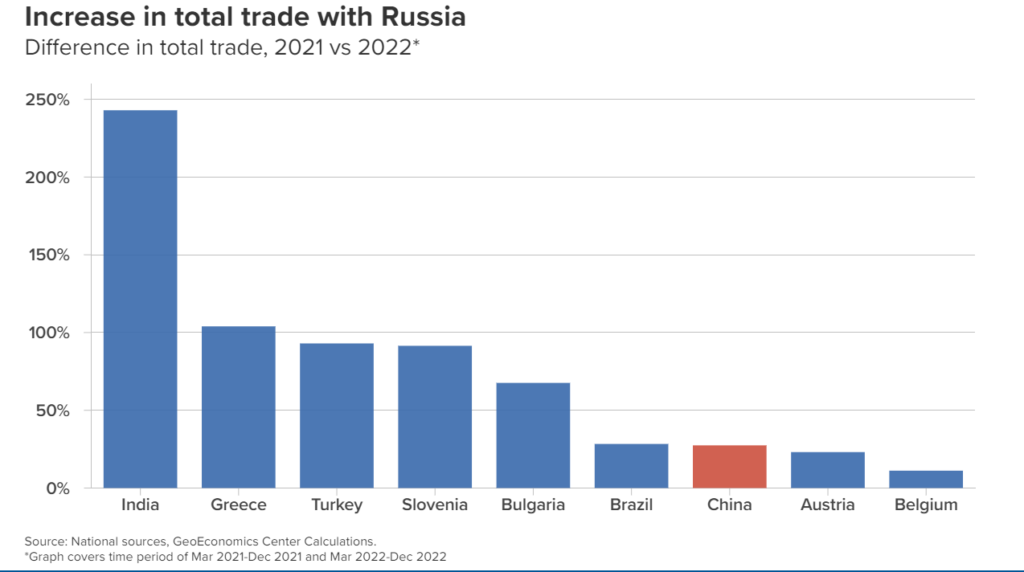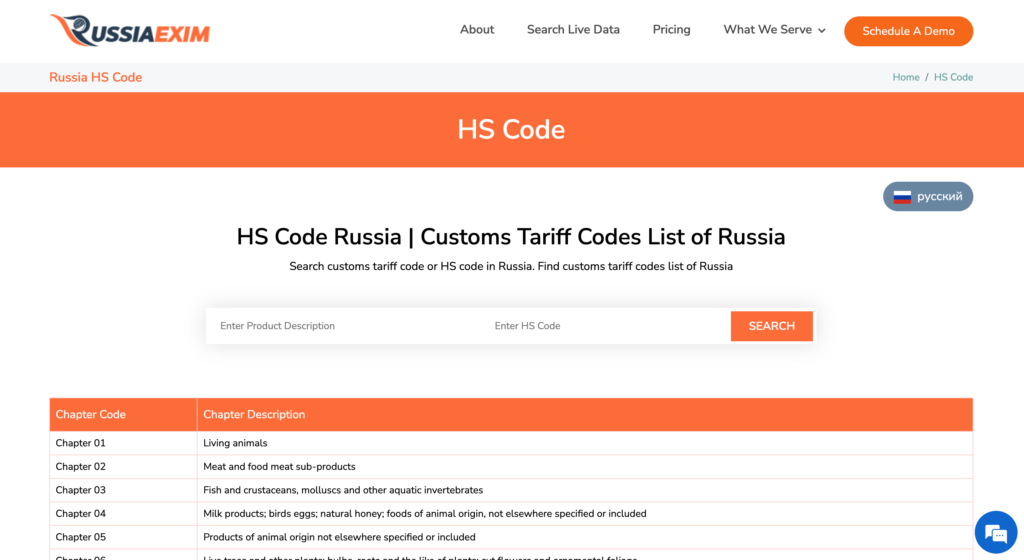Table of Contents
In today's interconnected world, efficient freight shipping is essential for businesses engaged in international trade between Turkey and Russia. This article explores the key aspects of freight shipping, including rates, transit times, and duties & taxes, providing valuable insights for businesses and individuals working with DocShipper. Whether you're shipping goods from Turkey to Russia or vice versa, understanding these factors is crucial for effective logistics planning and successful cross-border transactions. To give you the best advice on which shipping method to choose for your shipment between those countries, we have compared these 2 options for you!
Turkey and Russia’s relations
The relationship between Turkey and Russia is complex and multifaceted, with a blend of historical, political, economic, and cultural ties. Over the years, the two countries have experienced periods of cooperation and competition, as well as occasional tensions. Today, they maintain a significant partnership in various sectors, including trade, energy, and diplomacy.
Turkey and Russia share a long history of cultural exchange and economic cooperation. The geographical proximity between the two countries has facilitated extensive trade relations, with Russia being one of Turkey's major trading partners. The energy sector is a key component of their bilateral cooperation, with Turkey serving as a critical transit hub for Russian natural gas exports.
While there have been occasional differences and geopolitical challenges that have strained their relationship, both Turkey and Russia have shown a willingness to engage in dialogue and seek common ground. The continuous efforts to enhance economic ties, cultural exchanges, and diplomatic cooperation have contributed to the overall stability and development of their relationship. As a result, travelers can expect a diverse and dynamic experience when exploring the connections between Turkey and Russia, marked by a blend of shared history, mutual interests, and unique cultural influences.
The commercial agreement between Russia and Turkey
Commercial agreements between Russia and Turkey are governed by several trade agreements and cooperation mechanisms. Here are some of the key commercial agreements between the two countries:
- Free Trade Agreement between Russia and Turkey: This agreement, signed in 2000, aims to promote bilateral trade by eliminating or reducing tariff and non-tariff barriers on traded goods between the two countries.
- Agreement on Promotion and Protection of Investments: This agreement encourages and protects mutual investments between the two countries, providing a favorable legal framework and ensuring investment security.
- Sector-specific agreements: Russia and Turkey have also signed sector-specific agreements in areas such as energy, agriculture, transportation, and tourism to promote closer cooperation and facilitate trade in these specific sectors.

The political relationship between Russia and Turkey
In recent years, Russia and Turkey's political relationship has been characterized by a blend of cooperation and competition. They have recognized the advantages of economic and energy cooperation, leading to significant growth in bilateral trade and energy ties.
Turkey emerged as Russia's primary trade partner in 2022, with trade volume reaching around 21 billion US dollars, covering various goods such as hydrocarbons, agricultural products, machinery, and more. The two nations also engaged in defense cooperation, but their relationship faced challenges due to disagreements over regional conflicts like the Syrian situation and Turkey's acquisition of Russian military equipment, which strained ties with NATO allies.
Despite these challenges, both countries have maintained a pragmatic approach, striving to balance competing interests and find common ground while navigating the complexities of regional dynamics. The future of their relationship will depend on how they manage their differences effectively amidst evolving regional dynamics.
What is the best method of transportation between Turkey and Russia?
There are 2 different methods to ship your goods between Turkey and Russia: by sea freight or air freight. To give you the best advice on which shipping method to choose for your shipment between them, we have compared these 2 options for you!

Sea Freight between Turkey and Russia
Sea freight between Turkey and Russia has witnessed a significant increase in trade volume, reaching approximately $23 billion in 2020. Both countries have invested in modernizing their port infrastructure, with ports like Novorossiysk in Russia and Istanbul and Mersin in Turkey being upgraded to handle larger vessels and increased cargo volumes.
The average transit time for sea freight from Turkey to Russia is around 5 to 10 days, depending on various factors. Containerization remains a popular method, with a growing use of specialized containers for temperature-sensitive cargo.
E-commerce has also influenced sea freight, leading to an increase in small parcel shipments. Both countries are actively promoting sustainability in the industry, adopting eco-friendly technologies and optimizing shipping routes for energy efficiency.
![]()
DocShipper Tips: Cargo shipping is interesting if you prioritize cost-effectiveness over delivery time for your products.
Note DocShipper : Our team of specialists would be delighted to help you with your strategy or respond to any questions you may have. All you have to do is fill out our online form to get in touch with us.
Ocean freight between Turkey to Russia
Maritime trade between Turkey and Russia faces challenges due to strained diplomatic relations, geopolitical tensions, and navigating complex legal and regulatory frameworks. Political uncertainties and potential trade restrictions, along with disruptions to shipping routes, add to the complexity. Businesses must carefully plan, adapt, and coordinate with logistics partners to ensure successful operations in this challenging trade environment.
The ongoing conflict in Ukraine has further complicated maritime trade between Turkey and Russia. The heightened tensions and sanctions imposed by certain countries have disrupted trade flows and created uncertainty. Adapting to changing regulations and closely monitoring the evolving situation is crucial for businesses engaged in this trade. The conflict highlights the geopolitical factors that can impact maritime trade and emphasizes the need for careful consideration of the regional context.
Main ports of Turkey
The three main ports of Turkey are:
- Port of Istanbul: Situated on the Bosporus Strait, the Port of Istanbul is the largest and busiest port in Turkey. It serves as a crucial international trade hub, connecting Europe and Asia. The port consists of multiple terminals, including Haydarpasa, Ambarli, and Pendik, and handles a wide range of cargo, including containers, bulk cargo, and liquid bulk.
- Port of Mersin: Located on the eastern Mediterranean coast, the Port of Mersin is one of the largest and most important ports in Turkey. It serves as a major gateway for international trade, particularly for containerized cargo, bulk cargo, and Ro-Ro (roll-on/roll-off) shipments. The port has modern facilities and excellent infrastructure, making it a preferred choice for various industries.
- Port of Izmir: Situated on the Aegean Sea, the Port of Izmir is another significant port in Turkey. It serves as a major trade gateway for the western part of the country and handles diverse cargo types, including containers, bulk cargo, and general cargo. The port's strategic location and efficient operations contribute to its importance in regional and international trade.
These three ports, Istanbul, Mersin, and Izmir, are key maritime gateways that facilitate a significant portion of Turkey's import and export activities. They have well-developed infrastructure, efficient logistics operations, and connect Turkey to global trade networks.
DocShipper info : DocShipper is an international freight forwarder that organizes the transportation of your goods from the supplier's warehouse to the final destination. Relax, because we take care of everything: from packing to organizing the transport, to customs clearance and administrative procedures, regardless of the shipping method (air, sea, road, rail). Contact us to receive a free estimate in less than 24 hours. You have a question ? Call our consultants for free.
Main ports of Russia
The three main ports of Russia are:
- Port of Novorossiysk: Located on the Black Sea coast, the Port of Novorossiysk is one of the largest and busiest ports in Russia. It serves as a vital gateway for international trade, connecting Russia to the Mediterranean Sea and other regions. The port handles various types of cargo, including containers, bulk cargo, and liquid bulk. It also has specialized terminals for oil and grain shipments.
- Port of St. Petersburg: Situated on the Gulf of Finland, the Port of St. Petersburg is a major port in Russia and the Baltic Sea region. It serves as a key hub for containerized cargo, bulk cargo, and general cargo. The port has modern infrastructure, including deep-water berths and advanced logistics facilities. It plays a crucial role in facilitating trade between Russia and Northern Europe.
- Port of Vladivostok: Located on the Pacific coast, the Port of Vladivostok is a significant port in Russia's Far East region. It serves as a major trade gateway for the Asia-Pacific region and plays a vital role in Russia's international maritime trade. The port handles various types of cargo, including containers, bulk cargo, and automobiles. It has undergone significant development to accommodate increased trade volumes and improve logistics efficiency.
Novorossiysk, St. Petersburg, and Vladivostok are key ports in Russia, facilitating import and export activities. With strategic locations, advanced infrastructure, and global connectivity, they contribute to economic growth and international trade relations.
Transit time between the ports of Turkey and the ports of Russia
With an average transit time of 17 to 45 days, cargo shipping is commonly used for secure and streamlined transportation.
Ocean freight, although reliable, is the slowest mode of shipping. The provided transit times represent averages from port to port and do not include collection, delivery, and customs clearance procedures. It is important to consider these additional factors when planning shipments via ocean freight.
How to choose container types for Turkey-Russia shipping?
There are various sorts of containers, but the three most prevalent sizes are:
- 20 ft Equivalent Unit (TEU): A standard container with dimensions of 20 feet in length, 8 feet in width, and 8.5 feet in height, with a capacity of approximately 1,172 cubic feet or 33.18 cubic meters.
- 40 ft Equivalent Unit (FEU): A standard container with dimensions of 40 feet in length, 8 feet in width, and 8.5 feet in height, commonly abbreviated as "40 ft" or "40', with a capacity of approximately 2,390 cubic feet or 67.67 cubic meters.
- 40 ft High Cube (HQ) container: Similar to the FEU container, but with an additional height of 1 foot, making it 9.5 feet in height. It has an increased capacity of approximately 2,694 cubic feet or 76.3 cubic meters.
Full Container or FCL (Full Container Load)
When it comes to sea freight, there are two main options for transporting goods: Full Container Load (FCL) and Less Than Container Load (LCL). The primary difference between the two lies in the consolidation of cargo.
FCL involves shipments where an entire container is filled with goods from a single party. This option is ideal for businesses with high-volume items or large quantities of products that require dedicated container space.
Advantages of FCL
- Exclusive use of the entire container, minimizing the risk of damage or loss.
- Faster transit times without the need for consolidation or deconsolidation.
- Greater control over the shipment process, including loading, packing, and scheduling.
Disadvantages of FCL
- Higher cost, especially for smaller cargo volumes.
- Potential wasted space and higher costs if the container is not fully utilized.
- Limited flexibility for changes or additions to the cargo after loading.
Maritime consolidation or LCL (Less than Container Load)
Maritime consolidation, also known as Less Than Container Load (LCL), is a shipping method that combines smaller shipments from multiple shippers into a single container. With LCL, businesses or individuals who have smaller quantities of goods to ship can share container space and split the cost with other parties. This option is particularly beneficial when the cargo volume does not fill an entire container, allowing for cost-effective transportation of smaller shipments. LCL offers flexibility, affordability, and convenience for those who do not require a full container for their goods.
Advantages of LCL
- Cost efficiency through sharing container space and splitting transportation costs.
- Flexibility for smaller cargo volumes and irregular shipping needs.
- Accessible in major ports and shipping routes.
Disadvantages of LCL
- Longer transit times due to consolidation and deconsolidation processes.
- Increased risk of damage or loss when sharing container space.
- Limited control over timing and handling of goods.
DocShipper Recommendation: For cargo volumes ranging from 2 m3 to 13/14 m3, we highly recommend using the LCL (Less Than Container Load) shipping option. However, if the volume exceeds that range, opting for FCL (Full Container Load) shipping is preferable and cost-effective.
How can you choose between LCL and FCL
The choice between FCL and LCL depends on factors such as a company's inventory requirements, the nature of the goods being shipped, cost considerations, and the overall volume of products. By understanding these differences, you can make informed procurement and shipping decisions that align with your specific needs and optimize your supply chain operations.
Special maritime transport between Turkey and Russia
Special maritime transport between Turkey and Russia offers tailored solutions for the transportation of unique goods. It includes options for oversized or heavy cargo, hazardous materials, perishable goods, and those requiring temperature control. Dedicated vessels with specialized features ensure the safe and efficient delivery of such goods. Compliance with regulations and collaboration with experienced logistics providers are essential for a successful transport process.
DocShipper Advice: If you're considering importing or exporting goods, it's highly recommended to seek the assistance of a knowledgeable expert such as Docshipper. When it comes to transportation options for your goods, consolidation can be a somewhat risky choice. However, with Docshipper's expertise in the export and import process, particularly in FCL and LCL consolidation, you can rest assured that your needs will be taken care of promptly. Get in touch with us today via our contact form or give us a call, and one of our experienced professionals will provide you with swift assistance.
Container Options for Specialized Shipping: Reefer? Ro-Ro? Bulk? OOG?
When determining the appropriate container for your shipment, several factors come into play, including the size of your cargo and the nature of the goods. Various container options are available to accommodate specific needs:
- Reefer Container: These refrigerated containers are ideal for temperature-sensitive products such as meat, fruits, vegetables, dairy products, pharmaceuticals, and chemicals. They ensure that goods maintain a stable temperature throughout their journey.
- Ro-Ro (Roll-on/Roll-off): Ro-Ro vessels are used for shipping vehicles and are loaded via ramps. They provide a straightforward and cost-effective method for transporting vehicles. The vehicles are driven onto the vessel's car decks and securely fastened.
- Bulk Cargo: Bulk goods are directly loaded into the ship's hold or designated facilities. There are two types of bulk goods: solid bulk goods (e.g., coal, ores) and liquid bulk goods (e.g., petroleum products). Specialized bulk carriers, such as ore carriers or coal carriers, are used for transporting bulk cargo.
- OOG (Out of Gauge): OOG cargoes are non-standard in dimensions or weight and cannot fit into standard containers. They are typically loaded onto platforms or trailers for transportation. Open Top Containers have no rooftop, while flat-rack containers lack roofs and partitions on the sides, allowing for the shipping of heavy or oversized items in terms of height and/or width.
Considering the specific requirements of your cargo, selecting the appropriate container type ensures the safe and efficient transportation of your goods.
How much does the ocean freight cost between Turkey and Russia?
The average cost of shipping a 20-foot container (FCL) from Turkey to Russia ranges from $500 to $1,500, while the cost of a 40-foot container (FCL) can range from $800 to $2,500. The cost of shipping a Less than Container Load (LCL) shipment can vary depending on the volume and weight of the cargo. Please note that these are approximate estimates, and the actual cost may vary based on the specific details of your shipment.
How is the freight cost between Turkey and Russia calculated?
The weight/volume ratio, or volumetric weight, is the most used method to calculate sea freight costs between Turkey and Russia. It determines the chargeable weight of a shipment, used by carriers to calculate costs.
The formula for calculating volumetric weight involves multiplying the length, width, and height of the shipment, then dividing by a volumetric weight factor. The resulting volumetric weight is compared to the actual weight, and the higher is used as the chargeable weight for shipping costs.
For example, if you have a shipment from Turkey to Russia with a physical weight of 500 kg but a volume of 2 cubic meters, and the volumetric weight factor is 5000 cubic centimeters per kg, you can calculate the volumetric weight as follows:
Volumetric weight (kg) = Volume (m3) / Volumetric weight factor (m3/kg)
Volumetric weight (kg) = 2 m3 / 5000 m3/kg = 0.4 kg
In this case, the volumetric weight of 0.4 kg is higher than the actual weight of 0.5 kg. Therefore, the shipping costs would be based on the volumetric weight of 0.4 kg, as it would be considered the chargeable weight for the shipment.
Using the weight/volume ratio allows for accurate calculation of shipping costs based on space occupied, ensuring efficient utilization of cargo space and appropriate charges for larger but lighter shipments, reflecting actual space occupied in the shipping vessel.
DocShipper Advice: As you can see, there are a variety of elements that influence delivery costs. Fill out our online form to speak with one of our experts right now. For more information about this kind of transportation, see our website devoted to marine freight: Sea freight

Air freight between Turkey to Russia
Air freight between Turkey and Russia is often preferred for urgent shipments requiring a fast delivery time.
What are the different types of air freight?
There are two main types of air freight services available:
- Conventional air cargo: Utilizes space on conventional airlines (such as Air France, Air China…) and cargo carriers for larger quantities of goods. Ideal for non-time-sensitive shipments following regular airfreight schedules.
- Express air freight: Relies on courier companies like DHL, FedEx, TNT, UPS, and others for smaller shipments, typically parcels or packages. Designed for expedited delivery of time-sensitive items such as documents, perishable goods, or high-value items. Offers faster transit times, tracking, insurance, and priority handling.
![]()
DocShipper advice : If your valuable goods require urgent delivery and have a volume of less than 2 CBM, it is recommended to opt for airfreight.
DocShipper Alert : As an international freight forwarder, DocShipper specializes in arranging the transportation of your goods from the supplier's warehouse to their final destination. Our all-inclusive services cover everything from packing to customs clearance and administrative procedures, regardless of the mode of transport selected, including air freight. Contact us now to receive an estimate within 24 hours."
Classic or express air freight?
Classic and express air freight are two options for shipping goods by air, each with its own advantages and considerations.
- Classic air freight, also known as standard air freight, refers to the traditional method of shipping goods by air. It offers a balance between cost and speed, making it suitable for less time-sensitive shipments. Classic air freight typically operates on scheduled flights and has longer transit times compared to express services.
- Express air freight, on the other hand, is a faster shipping option that prioritizes speed and time-critical deliveries. It is commonly used for urgent or time-sensitive shipments that require quick delivery. Express air freight services often operate on dedicated or chartered flights, allowing for faster transit times and expedited handling.
When choosing between classic and express air freight, several factors come into play. The urgency of the shipment, budget constraints, and the nature of the goods are essential considerations. Classic air freight offers a more cost-effective solution for non-urgent shipments, while express air freight ensures faster delivery but may come at a higher cost.
It is important to work closely with logistics providers or freight forwarders to determine the most suitable option based on your specific needs, timeline, and budget. They can provide guidance on transit times, and pricing and help navigate the complexities of air freight to ensure your goods are transported efficiently and reliably.
Main airports of Turkey
Here is a list of the five main airports in Turkey:
Main airports of Russia
Here is a list of the five main airports in Russia:
What are the advantages of air transport?
Air freight offers several advantages that make it a preferred choice for certain types of goods:
- Speed and Reliability: Air transport is known for its speed, allowing goods to be transported quickly across continents. This is particularly beneficial for perishable items, live animals, and time-sensitive goods.
- Safety: Airports have strict regulations and security measures in place, ensuring the safety and protection of air cargo. This reduces the risk of theft or damage during transit.
- Extensive Coverage: Air freight can reach even the most remote locations by utilizing airports as transportation hubs. Goods can then be efficiently transported to their final destination by road or other means.
- Tracking Capabilities: Many air cargo service providers offer online tracking systems, allowing shippers to monitor the status of their shipments in real-time. This provides transparency and peace of mind throughout the transportation process.
- Cost-effective Packaging: Due to the lightweight nature of air shipments, packaging requirements are often minimal. This reduces the need for excessive packaging materials and containers, resulting in cost savings for shippers.
In summary, air freight provides fast and reliable transportation, enhanced security measures, extensive coverage to remote areas, tracking capabilities, and cost-effective packaging options for certain types of goods.
How much does it cost to transport air freight between Turkey and Russia?
Shipping costs from China to the US can vary depending on various factors such as the chosen mode of transport, shipment size, weight, and applicable taxes and customs duties.
When it comes to air freight, rates typically range from $100 to several thousand dollars.
The International Air Transport Association (IATA) establishes a tariff structure for air freight. The basic rate is determined based on weight bands, with prices decreasing as the weight increases.
There is usually a minimum charge for very small shipments. Here is an example:
- Price per kilo: $6
- 1000 to 2500 kg: $5/kg
- 2500 to 3500 kg: $4/kg
- More than 3500 kg: $3/kg
- Minimum collection: $600
It's important to note that the calculation of the tariff is not solely based on the gross weight of the goods but also takes into account the volumetric weight.
Additionally, airlines and airports may apply additional fees and taxes such as airport tax, AWB (Airway Bill) fees, security tax, risk insurance tax, and fuel tax.
These additional charges and taxes vary depending on the specific airline, airport, and the nature of the shipment.
It's advisable to consult with a freight forwarder or shipping agent to get accurate and up-to-date information on the total cost of air freight from China to the US, including any applicable fees and taxes.
How to calculate the volumetric weight of your shipment?
Just like the sea freight previously, an equivalency rule is applied as well by all air carriers to calculate the volumetric weight. The greatest of the volumetric weight and the gross weight of your goods will be used. Please note the following rules:
Classic airfreight : 1 CBM = 167 Kgs (1:6)
Express airfreight : 1 CBM = 200 kgs (1:5)


Door-to-door delivery between Turkey and Russia?
Door-to-door is the most common and convenient way to ship your goods. In this case, the customer is free of all the steps related to the shipment. We take care of the entire process from the beginning, including loading and collection of your goods, customs clearance, freight to the port/airport of arrival in Turkey or Russia and the delivery to your warehouse or your home. Door-to-door is above all a practical and fast solution.
Docshipper banner: By combining our experience with the professionalism of our partners in Turkey and the US we guarantee you quality service from A to Z, you will not have to take any steps, and you will be relieved of some of your worries. This method will save you time and also money, so don’t hesitate to contact us!
What are the advantages of door-to-door services?
Advantages of Door-to-Door Services:
- Convenience: Door-to-door services provide a high level of convenience as the shipping company takes care of the entire transportation process, from pickup at the origin to delivery at the destination. This saves the customer from the hassle of coordinating multiple parties and handling logistics.
- Time-Saving: Door-to-door services are typically faster compared to other shipping options. The shipping company takes responsibility for managing the entire process, ensuring timely pickup, transportation, and delivery of the goods.
- Reduced Risk of Damage: With door-to-door services, the shipping company is accountable for the safe handling and transportation of the goods throughout the entire journey. This reduces the risk of damage or loss compared to multiple transfers between different modes of transport.
- Improved Tracking and Visibility: Door-to-door services often include advanced tracking systems that provide real-time updates on the shipment's location and estimated delivery time. This allows customers to have better visibility and peace of mind regarding the status of their goods.
DocShipper info : Looking for a safe and dependable door-to-door service between Turkey and Russia? We will gladly assist you in locating the best comprehensive package for you. DocShipper is here to assist you from A to Z and ensure the smoothest possible shipment, with no intervention required from your side as our team will take care of everything. Please do not hesitate to contact us.

Customs clearance for goods imported from Turkey and Russia
In this section, we provide detailed guidance on the requirements and regulations that you should be aware of when importing products from Turkey and Russia.
Our guidelines aim to assist you in understanding the import process by offering an overview and index, making it easier for you to comprehend the general rules and procedures for importing goods from these countries.
Also we will include links to the main regulations applicable in Turkey and Russia, enabling you to access the necessary information to ensure compliance with import regulations.
Limited items
- Alcohol and tobacco products (limited quantities allowed for personal use only)
- Plants and plant products (subject to plant quarantine requirements)
- Electronic products (require certification from the Turkish or Russian Ministry of Communication and Information)
- Medical devices and pharmaceutical products (require certification from the Turkish or Russian Ministry of Health)
- Food products (require certification from the Turkish or Russian Ministry of Agriculture)
- Cosmetics and personal care products (require certification from the Turkish or Russian Food and Drug Administration)
What are the customs duties and taxes?
In order to comply with Turkish documentation procedures for importing goods, it is necessary to include a commercial invoice and a know-how or air waybill for all commercial shipments. Additionally, depending on the nature of the product, importers may be required to present a certificate of origin.
For most items, an importer only needs a tax number to facilitate the import process. However, it's important to note that certain restricted items, such as firearms and hazardous materials, can only be imported by licensed establishments or with the approval of relevant Turkish government agencies. Therefore, for such restricted items, it is necessary to either obtain the required licenses or seek approval from the appropriate authorities before importing them into Turkey.
How to calculate customs duties and taxes
To find out the rate of duty applied to your products, information is available online for free. You will be able to select the date, country of origin, destination and all related data to get the information you are interested in. We will guide you in this search a little further down.
In Turkey
When shipping items internationally or importing goods from abroad, it is important to consider the taxes and duties that may apply. These charges are determined by several factors, including the weight, value, and type of the shipment, as well as the country from which it is being imported or transported.
The tax rates for imported goods depend on the origin of the consignment. If the order is placed within the European Union (EU) or sent from an EU country, the tax rate is typically 18%. However, if the consignment is from a non-EU country like China, the tax rate increases to 20%. Additionally, certain products listed under the Special Consumption Tax (SCT) number 4 list are subject to an additional 20% SCT.
Let's consider an example where you purchased a "luxury" item worth TL 200. With a 20% customs tax rate for products imported from Turkey or Russia, you would need to pay an additional TL 40. Additionally, the Special Consumption Tax (ÖTV) of 20% would be applicable to the product price plus customs tax, resulting in an extra TL 48. Other charges to be aware of include a customs presentation fee of TL 8 and a stamp duty of TL 0.70, regardless of the item's value. In total, the amount payable would be TL 296.70.
In Russia
VAT is a tax imposed on the sales of goods, works, and services, as well as property rights transfer. Taxpayers include legal entities and individual entrepreneurs.
The tax rates for VAT vary (0%, 10%, 18%) based on the type of goods and operations. The taxable period is a quarter of a year, and tax payment is due on the 20th day of each of the three months following the end of the tax period. Tax returns are submitted by the 20th day of the month following the quarter.
Russian and non-Russian businesses operating in Russia are taxpayers. The taxable object is profit (income minus costs), determined according to the Tax Code. The tax base is based on income as specified in the Tax Code, with special rules for different tax rates. Reporting periods align with the calendar year.
It's important to note that these tax rates are subject to specific conditions and provisions outlined in the Russian Tax Code.
DocShipper info: At DocShipper, we do not charge customs duties directly. Customs duties and taxes are paid directly to the government. However, we do charge customs clearance fees for our services, which cover the administrative tasks and expertise involved in the customs clearance process.
Customs value
To calculate customs duties, Russia and Turkey determine the value for duty using the CIF valuation method, which stands for "Cost, Insurance, Freight", just like most countries in the world.
CIF value = Cost of the goods + Cost of transportation to the port of departure + Cost of export clearance + Cost of transportation to the port of entry in the country + Insurance
How to calculate applicable tariff with the HS code?
When importing goods between Turkey and Russia, it is important to follow the customs procedures and regulations to ensure smooth clearance of your goods.
The first step is to determine the Harmonized System (HS) code of the product you are importing. The HS code is an internationally recognized system for classifying goods based on their nature, composition, and intended use. The HS code, together with the country of origin, will determine the applicable customs duty and tax rates.
This is how the HS code is composed :

How do I find the HS Code?
If you intend to import or export goods, you must first determine the correct HS code for your products. There are two basic methods for determining the HS code for your products.
To begin, you can check an HS code directory, which is categorized by product type or industry and is available online or in print. The second alternative is to obtain advice from a customs broker or freight forwarder, both of whom can be invaluable in international trade matters. While conducting online research or using a third-party website can be beneficial, but it can also be time-consuming and perplexing.
How to calculate the applicable tariff with the HS code?
Here are the steps to find the customs duties of each product using the HS code on the Russian Customs and Excise Department's official website:
- Visit the official website of the Indonesian Customs and Excise Department to access information about customs duties and other applicable taxes and fees for imports. On the website, you can find the page dedicated to customs duties for each product using the HS code.
- On the HS Code Search page, enter the HS code of the product you want to search for in the search bar provided.
- Click on the "Search" button located next to the search bar.
- The page will display the HS code of the product you searched for, along with the customs duties and other applicable taxes and fees that apply to that product.
- You can also click on the "View Detail" button to see a more detailed breakdown of the customs duties and taxes for that product.

Customs contacts
Customs Contact for Turkey:
Republic of Turkey Ministry of Trade

Website: https://www.gtb.gov.tr/
Email: info@gumrukticaret.gov.tr
Phone: +90 312 204 99 99
Customs Contact for Russia:
Federal Customs Service of Russia

Website: http://eng.customs.ru/
Email: info@customs.ru
Phone: +7 495 449-72-82
What documents are required for customs clearance?
The specific documentation required for customs clearance in Indonesia may differ based on the type of commodities being imported or exported, as well as the customs authority's specific criteria. However, the following are some frequent documents that may be required for customs clearance in Indonesia:
- Commercial invoice: This document provides a description of the goods being imported, as well as their value.
- Bill of lading: This is a legal document that provides evidence of the shipment of goods and includes details such as the type of goods, quantity, and destination.
- Packing list: This document provides a detailed list of the contents of each package being shipped.
- Import declaration: This is a document that declares the details of the imported goods, including their HS code, quantity, value, and country of origin.
- Certificate of origin: This document confirms the origin of the goods being imported and may be required to claim preferential treatment under a free trade agreement.
- Insurance certificate: This document provides evidence of insurance coverage for the goods being transported.
- Permits and licenses: Depending on the type of goods being imported or exported, various permits and licenses may be required, such as import permits or phytosanitary certificates.
![]()
Warehouse storage
Warehousing and storage solutions are essential for managing inventory and ensuring an efficient flow of goods. Service providers offer value-added services such as secure warehousing facilities, inventory management systems, labeling, packaging, and order fulfillment.

Packing and box
We talk about packaging every day. So what is the packaging? Packaging is a general term for containers, materials, and consumables used in the distribution process for the purpose of product protection, storage promotion, and sales promotion. Packing can actually prove to be an essential process in shipping, so we highly recommend entrusting it to a reputable agency. With our countless experiences in customer service, Docshipper is the provider of choice for special packaging and repackaging services.

Transportation insurance
Transport insurance is insurance covering personal property, including insurance for transported goods and means of transport. A common feature of this type of insurance is that, in contrast to fire insurance, the insured object is in transit or in constant motion. Fire insurance does not cover insured items because they must be stored in a fixed location in a relatively safe static state. It is recognized that prevention is better than cure. Therefore, it is advisable to be fully aware of this point. If you have any questions, please contact us directly.

Supplier management
Effective supplier management is essential to maintaining a smooth and reliable supply chain. Logistics service providers can assist with supplier management including procurement, supplier qualification, performance evaluation, and quality control to ensure the smooth flow of goods.

Shipping personal items
Since our founding, we have been dealing with relics. Do you have fragile or bulky items that you cannot carry yourself? Let our professional team do the work. Our highly qualified staff will optimally assist you in the handling of your personal belongings, ensuring the safety of your belongings throughout the moving process. We have encountered and overcome many obstacles in the history of our movement. We will give you a free estimate according to your needs and budget. Furthermore, we are very flexible with our customer's wishes and needs, even for full destination services.

FAQ | Freight Shipping between Turkey and Russia | Rates – Transit Times – Duties & Taxes
Can I track my freight shipment between Turkey and Russia?
Yes, tracking services are commonly provided by freight forwarders and shipping companies. They allow you to monitor the progress of your shipment, including its location and estimated delivery time. Tracking information is typically accessible through online platforms or by contacting the shipping provider directly.
How can I find a reliable freight forwarder for shipping between Turkey and Russia?
To find a reliable freight forwarder for shipping between Turkey and Russia, you can research and compare different companies based on their experience, reputation, services offered, customer reviews, and certifications. It is advisable to request quotes and evaluate their responsiveness, expertise, and ability to handle your specific shipping needs.
Are there any specific packaging requirements for sea freight shipments between Turkey and Russia?
Yes, sea freight shipments between Turkey and Russia must comply with specific packaging requirements to ensure the safety and integrity of the cargo during transit. These requirements may include proper packaging materials, adequate cushioning, sealing, and labeling. It is advisable to consult with freight forwarders or shipping companies to understand and adhere to the packaging guidelines.
Can I track my shipment in real-time when shipping goods by rail from Turkey to Russia?
Yes, real-time tracking services are available for rail freight shipments from Turkey to Russia. Rail operators and logistics providers offer tracking solutions that allow you to monitor the progress of your shipment, including its location, estimated arrival time, and any potential delays. It is recommended to inquire about the tracking options offered by your chosen rail service provider.
Can I use my own shipping containers for sea freight shipments between Turkey and Russia?
Yes, you can use your own shipping containers, known as shipper-owned containers (SOC), for sea freight shipments between Turkey and Russia. Using SOC can provide more control and flexibility over the container, but it is important to ensure that the container meets the necessary quality and safety standards set by the shipping line.
DocShipper | Procurement - Quality control - Logistics
Alibaba, Dhgate, made-in-china... Many know of websites to get supplies in Asia, but how many have come across a scam ?! It is very risky to pay an Asian supplier halfway around the world based only on promises! DocShipper offers you complete procurement services integrating logistics needs: purchasing, quality control, customization, licensing, transport...
Communication is important, which is why we strive to discuss in the most suitable way for you!





